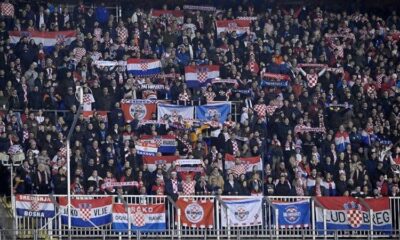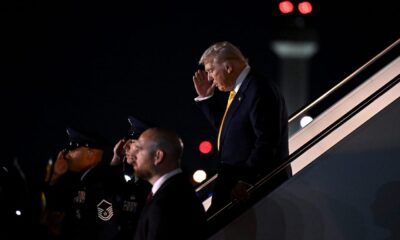Top Stories
Montenegro’s EU Path Faces Challenges from Serbian Influence

Montenegro’s aspirations for European Union membership are encountering significant obstacles, primarily influenced by Serbia and the Serbian Orthodox Church (SPC). According to Sonja Biserko, president of the Helsinki Committee in Serbia, political figures in Montenegro, such as Andrija Mandic, are likely to impede Montenegro’s EU progress through various political channels. Biserko emphasizes that the SPC remains the most crucial conduit for external influence, particularly from Moscow. In contrast, Montenegro’s membership in NATO is viewed as a critical bulwark against these foreign interventions.
The current geopolitical landscape complicates Montenegro’s EU journey. Biserko notes that Western support for the Special Prosecutor’s Office in reviewing the 2016 coup attempt case is a significant step towards restoring Montenegro’s European trajectory. This development aims to reinforce trust in the country’s institutional stability, which is essential for its integration into the EU.
Evaluating EU Membership Prospects
Biserko highlights that the European Commission has acknowledged Montenegro’s progress, suggesting it could be the next EU member state. This assessment is motivated by strategic considerations similar to those during the accession of Romania and Bulgaria. However, the EU has transformed considerably since then, with consensus-based decision-making further delaying processes, as evidenced by recent decisions regarding support for Ukraine.
The ongoing debate over a proposal, initiated by French President Emmanuel Macron, to grant new member states limited voting rights raises questions about Montenegro’s potential EU accession. Biserko argues that this “incomplete membership” could serve as a mechanism to encourage necessary reforms. She stresses that the EU must establish clear instruments to monitor the conduct and progress of new members, something that has been lacking in past expansions.
The transitional period, which would accompany such incomplete membership, would serve as an extensive test of political and institutional stability. During this time, the EU would scrutinize five key areas: the rule of law and democracy, external policy alignment, economic and fiscal stability, border control and migration management, and good neighborly relations.
Regional Dynamics and Internal Challenges
Biserko points out that Montenegro possesses certain advantages in terms of regional relations—such as not having open disputes with neighboring countries and maintaining balanced regional ties. The country has recognized Kosovo and acknowledged the genocide in Srebrenica, distinguishing it from other Western Balkan nations.
Despite these positives, pro-Serbian forces in Montenegro present a significant challenge to its EU path. Notably, the municipality of Budva has signed an agreement with the SPC to fund the construction of a new church, allocating €1 million for the project. Biserko warns that this development could substantially hinder Montenegro’s EU ambitions, although she believes that the EU and the West have begun to adopt a clearer stance on the strategic importance of the Western Balkans.
Recent discussions at a NATO meeting in Rome underlined concerns that the Western Balkans could once again become a “powder keg of Europe.” Biserko asserts that ensuring the region remains aligned with the West is critical for both the EU and NATO, as it safeguards freedom of movement, state sovereignty, and peace on the continent.
As for the political landscape in Serbia, Biserko observes that President Aleksandar Vučić is primarily focused on his political survival amid ongoing turmoil within the country. His efforts to divert internal crises into a regional narrative of Serbian victimization have not yielded success. Despite maintaining a grip on power through various means, Vučić’s image as a stabilizing force has eroded over the past year.
In conclusion, the interplay of internal and external factors will significantly influence Montenegro’s EU membership prospects. Biserko emphasizes that the urgency of Montenegro’s accession to the EU reflects the broader geopolitical picture in the region, particularly in light of Serbia’s ongoing challenges and the need for stability in the Western Balkans.
-

 Entertainment3 months ago
Entertainment3 months agoAnn Ming Reflects on ITV’s ‘I Fought the Law’ Drama
-

 Entertainment4 months ago
Entertainment4 months agoKate Garraway Sells £2 Million Home Amid Financial Struggles
-

 Health2 months ago
Health2 months agoKatie Price Faces New Health Concerns After Cancer Symptoms Resurface
-

 Entertainment3 months ago
Entertainment3 months agoCoronation Street’s Carl Webster Faces Trouble with New Affairs
-

 Entertainment2 months ago
Entertainment2 months agoWhere is Tinder Swindler Simon Leviev? Latest Updates Revealed
-

 Entertainment4 months ago
Entertainment4 months agoMarkiplier Addresses AI Controversy During Livestream Response
-

 Science4 weeks ago
Science4 weeks agoBrian Cox Addresses Claims of Alien Probe in 3I/ATLAS Discovery
-

 Entertainment4 months ago
Entertainment4 months agoKim Cattrall Posts Cryptic Message After HBO’s Sequel Cancellation
-

 Entertainment2 months ago
Entertainment2 months agoOlivia Attwood Opens Up About Fallout with Former Best Friend
-

 Entertainment3 months ago
Entertainment3 months agoMasterChef Faces Turmoil as Tom Kerridge Withdraws from Hosting Role
-

 Entertainment4 months ago
Entertainment4 months agoSpeculation Surrounds Home and Away as Cast Departures Mount
-

 World2 months ago
World2 months agoCole Palmer’s Mysterious Message to Kobbie Mainoo Sparks Speculation




















